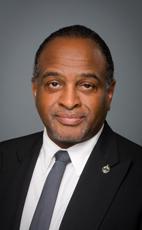Mr. Speaker, I am very pleased to debate this matter in the House today. At the same time, I am very disappointed that we are having the same debate once again.
In 2011, we debated the same subject, transparency for the public. The NDP supports the concept of disclosure, of making things public. However, many of my colleagues and I feel that the members are trying to bring in by the back door what they were unable to bring in through the front door. This discussion only seeks to discredit the CBC.
This all started when someone asked why we need a public broadcaster. Now we have a bill that opens the door to very sensitive information. I am not referring to the salaries; I am referring to the second part, which concerns information that is made public and that the CBC's competitors can use against it.
It is very easy to look at an expense report to see who is meeting with whom and, through that, decide or figure out what kind of programming is going on. My mother has always said, “When you're looking at an issue, consider the source”. The private members' bill comes from a group of people where, and I will quote from the Hill Times, one Conservative MP has acknowledged that his party's members and the government will be “breathing a sigh of relief” when Kevin Page's term ends in March.
To answer the member's question, it has to do with the fact that we have a group of people, we have the government and backbenchers, demanding transparency from all sorts of organizations, while they refuse to be transparent. To the same subject, in 2011, I put forward a question on the order paper, asking for the disclosure of the salaries of the PMO and was met with a resounding thud of silence. Therefore, considering where this comes from, it is not hard to doubt, for lack of a better way of putting it, the motivations of the private member's bill. The type of transparency that the member is looking for, as I said, is the type of transparency that can damage the work that CBC does, both in journalism and its programming.
This same member, as my colleague pointed out, asked why we needed a public broadcaster. I have heard it said time and again: Why do we need a public broadcaster if there are corporate organizations that can do it just as well or better? To that point, I will say that is a possibility. It is a possibility that they would be able to do it better because they have access to more resources to hire the best directors, to hire the best producers.
However, based on my 25 years of experience working in this industry, the fact is that corporate broadcasters do not want to do it. They do not want to create shows that speak to Canadians, created by Canadians, for Canadians. Who else is going to create shows that from coast to coast to coast engage Canadians, in a Canadian voice, for Canadians? Nobody, because there is no money in it.
For example, in 2007, the broadcasters crowed about how much money they spent on American programming. It was over $750 million. In that same period of time, they spent just over $50 million on Canadian programming. That includes the magazine shows, the sports shows and so forth, but no creative programming.
For the last 75 years, the CBC has created programming that Canadians have enjoyed from coast to coast to coast, because they have seen themselves in those shows. They have seen and heard themselves nationally, and internationally with Radio Canada International.
From my perspective, this private member's bill is redundant, because there are already laws that require disclosure. CBC, to its credit, went to great lengths to open up and become better at disclosing information. In less than a year, it went from an F to an A. The hon. member says that going from an F to an A was only for time. Time was part of that, but so was disclosure. It disclosed all it was obliged to disclose and fought those issues it felt were damaging to its ability to do the work.
I must underline that the vast majority of the access to information requests, which were some 1,400 during this period, came from one source: a competitor. It saddens me that the government continues to do the work of a competitor in this environment when it claims it wants a level playing field. If it is to be a level playing field, then let it be a level playing field.
It is clear that there are certain members of the government and/or the backbenches who have a continued dislike for the CBC and are looking for ways to de-fund the CBC. From my perspective, it makes me suspect the motivation for the bill. I say “suspect”. Maybe the member has good intentions. However, if the bill is supposed to shine a light on all government activities, why is it directed at the CBC?
In this context, why does this bill target the CBC?
If the bill has been, as my colleague said, created to shine a light, to make government spending transparent, then why is the bill not called a bill to demand more transparency from government and government institutions as opposed to targeting the CBC?
For that reason, I am suspicious of the motivations.
The CBC is an organization that is very important to Canadians.
For a small cabal of Conservatives who want to see the CBC destroyed, I think this is a very weak attempt to go through the back door to accomplish what they could not accomplish through the front door.

